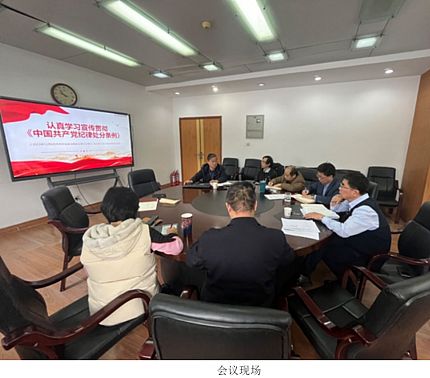在台灣的老外圈子裡的部落格中,最受重視的部落格之一是 Michael Turton 的
The View from Taiwan。他對台灣透視犀利,關於台灣政壇的動向分析遠比在台灣自己本土的記者要來得理性且深入。同時,他與其他網友如 Tim Maddog, Stop Ma 等人,持續地在監督外國媒體污衊台灣的報導,並不斷地以部落格、以email等方式在替台灣批判這些外國媒體敗類,避免了英語世界的外國媒體成為偏中的一言堂。
對於這一次美聯社跟 CNN 以「
台灣人渣競選總統」來污衊呂秀蓮的動作,Michael 以及與其合作的群體部落格
「台灣時事 Taiwan Matters」 均發表文章加以批判。另外,Michael 還投書到英文報紙
台北時報,指出
這事件的關鍵不在偏頗,而在外國媒體向來慣於放棄記者「平衡報導的道德要求標準」而主動地一面倒採用北京的觀點與措辭來污衊台灣。
 |
CNN 以「台灣人渣競選總統」為標題來污衊呂秀蓮
|
這次引發爭議的該新聞報導是由在香港的美聯社派出的中國記者李明(或李閩?)所撰寫。在 CNN 發表的該報導已經在爭議後將標題由「
台灣人渣競選總統」改為
「呂秀蓮欲成為台灣第一個女總統」,但是內文中仍然保留對呂秀蓮副總統的污衊用語。而且,修改前的「台灣人渣競選總統」一文,仍然可以從 google 的搜尋系統中找到 (到 google 打入 cnn scum of nation然後點選
cached。如果找不到,可以看看
我翻印下來的圖形檔。
Michael Turton 在「The View from Taiwan」發表的對 CNN 的批判:
CNN 以北京用語描述呂秀蓮對美聯社與呂秀蓮爭議的最後評語 Tim Maddog 在「台灣時事」發表的對 CNN 的批判:
CNN:有線新聞媒體的敗類Michael 在台北時報的投書在
這裡。因為很精彩,特別將其全文翻譯置於此:
The recent "scum of the nation" flap, and the response to it from the Taipei Times, Associated Press (AP) and other organizations, shows that the media still do not understand why Vice President Annette Lu (呂秀蓮) -- along with those of us who follow international media coverage of Taiwan -- find the story so offensive.
最近有關於「民族敗類」的事件,以及來自台北時報、美聯社及其他機構的反應,顯示出(台灣的)媒體還是沒搞清楚副總統呂秀蓮──和我們這些盯著「國際媒體的台灣報導」的一群人── 為什麼會覺得這整件事是如此冒犯。
The issue is not, as the Taipei Times framed it in a recent editorial ("Annette Lu tames the world press," March 10, page 8), one of naive bias on the part of CNN and AP. Nobody is accusing either organization of slanting stories to favor China. Rather, the issue is the foreign media's uncritical incorporation of propaganda from Beijing into its reporting on Taiwan in a way that is automatic and unconsidered, allowing those opinions to shape its discourse on the nation, instead of developing a robust understanding of Taiwan in its own context.
事情的關鍵並非如台北時報在最近的社論 ("Annette Lu tames the world press," March 10, page 8) 所說的,是 CNN 與美聯社幼稚的偏見。沒有人控訴這兩個單位以偏頗的報導來偏向中國。事實上這件事的關鍵在於,外國媒體很自動地、毫不遲疑地引用北京的政治宣傳用語來報導台灣,完全沒有經過任何批判。相對於先對台灣加以深刻瞭解之後以自己的觀點來看台灣,(這些媒體)充分採用北京的政治語言來對台灣下結論。
The "scum of the nation" story is an excellent example of how this works. Instead of selecting one of the numerous other possible angles on Lu -- Lu the politician, Lu the feminist, Lu the activist, Lu the Taiwanese -- AP chose to lead with what Bejing said. This constant and reflexive use of verbiage from Beijing to frame Taiwan continues throughout the article. Elsewhere in the article the writer, a Hong Kong Chinese, refers to "Beijing's sacred view" of its claim to Taiwan. Once again, we get Beijing's take on things.
這件「民族敗類」的事件是這種行為的最佳例子。美聯社置許多呂秀蓮的可能角色 ─── 政治家、女性主義運動者、行動主義者、台灣人 ─── 於不顧,僅採用北京對呂秀蓮的評語。該文章整篇反覆地出現這種北京用以污衊台灣的措辭。該文作者 ─── 一個來自香港的中國人 ─── 指稱北京對台灣的野心是「北京的神聖使命」。我們又看到北京在這件事情上得逞。
Once again, Beijing frames Taiwan. Why not Taiwan's "sacred view" of its own independence and democracy? And what is the word "sacred" doing in a news report in the first place?
於是,北京再一次地設計搆陷了台灣。為什麼(這些媒體)不說台灣自己的獨立與民主是「神聖的使命」?等一下,一篇新聞報導為什麼會出現「神聖」這兩個字?
The article goes on to offend further, reporting that "Taiwan has been ruled separately from China since the Communists won a civil war and took over the mainland in 1949." This is a common formulation, but the implication that Taiwan and China were one nation prior to this period is a historical error -- yet it is commonly reported in the foreign media as if it were true -- since (it goes without saying) Beijing claims this is the case.
接下來該篇文章繼續冒犯台灣,說「台灣是在 1949 年共產黨贏得內戰並接收大陸後由中國分離出來」。這雖然是一個通稱,但是這其中暗示的「在那之前,台灣與中國是一個國家」卻是一個歷史錯誤。但外國媒體卻不斷地把這個歷史錯誤當作事實一樣地報導,只因為北京這樣宣稱。
Of course, no foreign media article on a pro-democracy politician is complete without referring to the tensions such people allegedly cause: "... and tensions with China would likely rise if she were elected."
很自然地,這些外國媒體好像不報導底下這一條就會覺得他們的報導少了什麼:「 她(呂秀蓮)被選為總統很可能導致與中國之間的關係更緊張」
In fact, tensions would only likely rise if Lu were elected because Beijing would cause them to do so -- as it does whenever Taiwan exercises its democracy. Democracy and its supporters do not cause tensions -- it is opposition to democracy that creates tensions. The article once again chooses a Beijing-centric frame to discuss Taiwan.
事實上,她如果當選,只有北京有可能昇高緊張的情勢 ─── 就如同以往每一次台灣執行民主步驟時一樣。民主與民主的支持者不會造成緊張情勢,只有反民主的勢力才會製造緊張情勢。該篇文章又一次地採用北京的觀點來搆陷台灣。
Longtime media watchers in Taiwan are wearisomely familiar with the international media bogeyman constructed out of President Chen Shui-bian (陳水扁): "Mad Chen," the "Crazed Independence Radical" -- He Can Cause a War At Any Moment, He's So Crazy! Here we see the script for "Mad Annette" in its first draft.
長期在台灣的媒體觀察者都清楚並厭倦國際媒體小丑污衊陳水扁總統的用詞:「陳瘋子」、「發瘋的獨立偏激份子」、「他隨時會發動戰爭」、「他是如此瘋狂」!現在,我們看到「呂瘋子」的第一個版本。
Near the end of the article the writer refers to the assassination attempt by a pan-blue supporter on Chen and Lu in 2004, noting: "The opposition alleged the shooting was staged to win sympathy votes." Fundamentally, there was no reason to mention the shooting; it is irrelevant to Lu's presidential candidacy. "The opposition" is a coy reference to the Chinese Nationalist Party (KMT).
在文章尾端,該文作者提到 2004 年時一個泛藍支持者試圖暗殺陳水扁與呂秀蓮的事件,並下了這樣的註解:「反對勢力指控該暗殺事件是事先安排以贏得同情票的」。事實上該作者根本沒有必要提到該事件;該事件跟呂的競選總統無關。在這裡「反對勢力」暗指的是中國國民黨。
The writer also failed to mention that no evidence supports the opposition claims, making a hollow pretense of the sound journalistic ethic of balance in assigning equal weight to nonsense claims, and using the phrase "the police said" as if no investigation was conducted and no chain of evidence was followed. Note that the opposition's claim is set off in a sentence of its own, and that it comes last in the discussion of the assassination attempt. It goes with saying that Beijing supports the opposition on that one.
該作者沒有提到反對勢力的該項指控並沒有任何證據為根據,使得新聞記者「平衡報導」的基本道德成為一個空洞的虛言。該作者並刻意使用「警察說」(譯者註:而不是檢查官、法官說)使得整件事看起來好像沒有經過任何調查與搜證。值得注意的是,該反對勢力的指控本身是自說自話,在該暗殺事件的討論中的重要性微乎其微。有人說北京支持反對勢力的該項說法。
The issue here is not that China insulted Lu. The issue is that the foreign media repeatedly use Beijing to frame Taiwan, resulting in a media discourse about Taiwan that is strongly slanted in Beijing's favor. The bias lies not in the stories the international media select, but in the language and underlying assumptions the international media use in describing "The Beautiful Isle."
這整件事(「民族敗類」之言)的關鍵不在於中國侮辱呂秀蓮。重點在於外國媒體不斷地利用北京來搆陷台灣,使得有關台灣的報導一面倒地傾向北京的調調。這種偏見不在於外國媒體如何選擇報導的事件,而在於這些外國媒體在描述台灣這個「美麗寶島」時所用的語言與先入為主的觀念。








